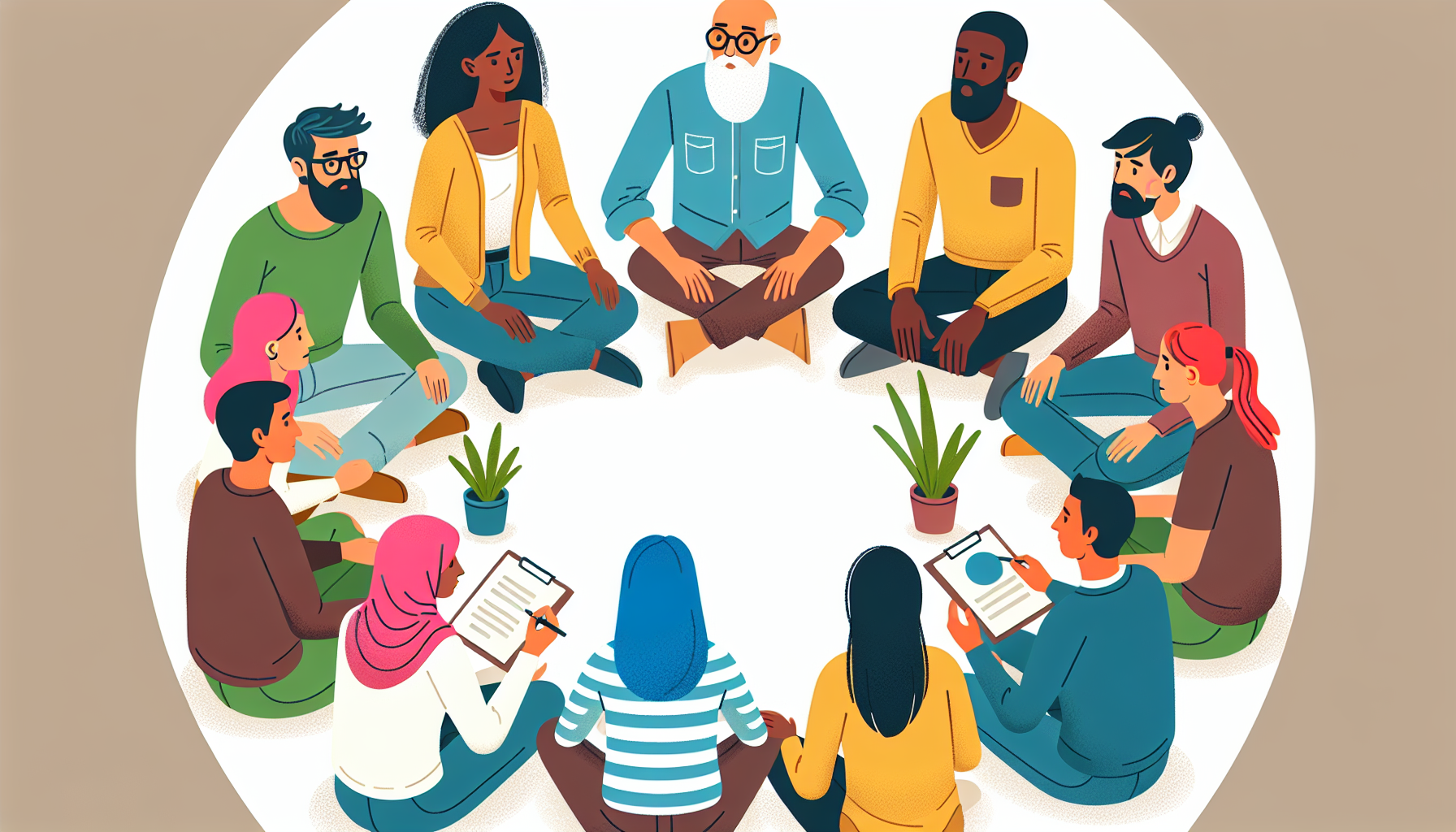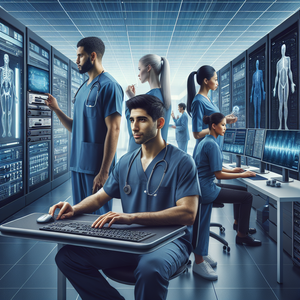Bridging Medicine and Technology: The Future of Healthcare Careers

Telemedicine has revolutionized the way healthcare is delivered, particularly accelerated by the COVID-19 pandemic. This approach enables patients to consult healthcare professionals remotely, breaking geographical barriers and providing access to care for those in underserved areas. As a result, various career opportunities have surged within this field. For instance, telehealth coordinators play a crucial role in facilitating virtual appointments, ensuring that both patients and providers have a seamless experience. They manage scheduling, technical support, and patient education regarding telemedicine use. This role has become increasingly vital as the demand for telehealth services continues to grow. According to a report from McKinsey, telehealth usage has stabilized at levels 38 times higher than before the pandemic, showcasing the enduring need for professionals who can support this service. Similarly, telehealth software developers are pivotal in creating user-friendly platforms that enhance communication between patients and healthcare providers. Their expertise ensures that systems are secure, efficient, and responsive to the needs of users. For example, platforms like Doxy.me and Amwell have emerged as leaders in the telemedicine space, thanks in part to the innovative work of skilled software developers. Moreover, telemedicine relies heavily on data analytics, where health informatics specialists analyze patient data to improve service delivery and outcomes. By leveraging big data, these professionals help identify trends, predict patient needs, and tailor healthcare services accordingly. The demand for such roles is expected to continue growing as telehealth becomes a staple in healthcare delivery, with projections indicating a compound annual growth rate (CAGR) of 37.7% for the telehealth market from 2021 to 2028.
Health App Development
With the rise of smartphones and mobile technology, health apps have become an integral part of managing personal health. These applications range from fitness trackers to chronic disease management tools, and their development requires a unique blend of healthcare knowledge and technical skills. Health app developers are tasked with creating software that is not only functional but also user-friendly and compliant with healthcare regulations. These developers collaborate with healthcare professionals to ensure that the features address real patient needs and improve health outcomes. For example, apps designed for diabetes management, such as MySugr, enable patients to track their blood sugar levels, medication schedules, and dietary choices—all while providing real-time feedback and support. Additionally, UX/UI designers in the health app development space play a critical role in ensuring that applications are accessible to users of all ages and technical abilities. They focus on creating intuitive interfaces that encourage user engagement and promote healthy behaviors. This blend of creativity and technical expertise presents a dynamic career path that appeals to those passionate about both technology and health. The rise of health apps also opens doors for health data analysts, who assess user interactions and outcomes to refine app features and enhance user engagement. Their work is crucial in ensuring that health apps not only meet user expectations but also contribute to improved health outcomes.
Wearable Health Technology
Wearable health technology, such as fitness trackers and smartwatches, has gained immense popularity, prompting a surge in related career opportunities. These devices enable users to monitor their health metrics, such as heart rate, sleep patterns, and physical activity levels, providing invaluable data for both individuals and healthcare providers. Professionals in this field include biomedical engineers who design and develop new wearable technologies. Their work often involves collaboration with healthcare professionals to ensure that devices meet clinical standards and effectively collect data that can be used for health monitoring. Companies like Fitbit and Apple are at the forefront of this revolution, constantly innovating to integrate advanced health metrics into their devices. Additionally, data scientists play a significant role in analyzing the vast amounts of data generated by wearable devices to derive insights that can improve patient care and inform healthcare strategies. For instance, research shows that data from wearables can help predict health events, enabling timely interventions that could prevent hospitalizations. The impact of wearable technology extends beyond individual health management. For example, pharmaceutical companies are exploring ways to integrate wearable devices into clinical trials, allowing for real-time monitoring of participants' health and improving the accuracy of data collected during studies. This innovative approach not only enhances trial efficiency but also paves the way for personalized medicine.
As technology continues to evolve, the healthcare industry stands on the brink of a transformation that will redefine traditional roles and create new career opportunities at the intersection of medicine and technology. Telemedicine, health app development, and wearable health technology are just a few examples of fields ripe for exploration. For those considering a career in healthcare, embracing these technological advancements can lead to fulfilling and impactful roles that enhance patient care and improve health outcomes. The future of healthcare is undoubtedly bright, fueled by innovation and a commitment to bridging the gap between medicine and technology. As we move forward, it is essential for aspiring professionals to equip themselves with the necessary skills and knowledge to thrive in this dynamic landscape, ultimately contributing to a healthier society. By understanding the convergence of healthcare and technology, individuals can position themselves at the forefront of this exciting evolution, ensuring that they play a vital role in shaping the future of healthcare careers.
Telehealth Coordinator
Kaiser Permanente, Teladoc
Core Responsibilities
Manage and schedule virtual appointments, ensuring timely access for patients and providers.
Provide technical support during telehealth sessions to troubleshoot connectivity issues.
Educate patients on using telehealth platforms effectively, enhancing their overall experience.
Required Skills
Strong communication skills to liaise between patients and healthcare providers.
Familiarity with telemedicine software and digital health tools.
Organizational skills to handle scheduling and follow-up processes.
Telehealth Software Developer
Amwell, Doxy.me
Core Responsibilities
Design and develop secure, user-friendly telehealth platforms that facilitate remote patient-provider interactions.
Collaborate with healthcare professionals to ensure the software meets clinical needs and compliance standards.
Implement features that enhance user engagement and streamline the telemedicine workflow.
Required Skills
Proficiency in programming languages such as Java, Python, or JavaScript.
Experience with API integrations and health informatics standards (e.g., HL7, FHIR).
Understanding of data security and privacy regulations in healthcare.
Health App Developer
MySugr, Fitbit
Core Responsibilities
Create health applications that support patient engagement and improve health management outcomes.
Collaborate with healthcare professionals to integrate evidence-based features into app designs.
Ensure compliance with healthcare regulations and standards (e.g., HIPAA).
Required Skills
Expertise in mobile app development (iOS and Android) and familiarity with Swift or Kotlin.
Strong understanding of user experience (UX) principles in healthcare.
Ability to analyze user feedback and implement iterative improvements.
Biomedical Engineer (Wearable Technology)
Apple, Fitbit
Core Responsibilities
Design and develop innovative wearable devices that monitor health metrics.
Conduct testing to ensure devices meet clinical and safety standards.
Collaborate with interdisciplinary teams to integrate technology into health monitoring applications.
Required Skills
Strong foundation in engineering principles, particularly in electronics and materials science.
Experience with product development and prototyping processes.
Knowledge of regulatory pathways for medical devices (FDA approval processes).
Health Data Analyst
Core Responsibilities
Analyze data generated from health apps and wearable devices to identify trends and inform healthcare practices.
Work with cross-functional teams to enhance user engagement and app functionality based on insights from data analysis.
Develop reports and visualizations to communicate findings to stakeholders effectively.
Required Skills
Proficiency in data analysis tools such as SQL, R, or Python, with a focus on health data metrics.
Strong analytical skills to interpret complex datasets and derive actionable insights.
Knowledge of health informatics and data privacy regulations.


